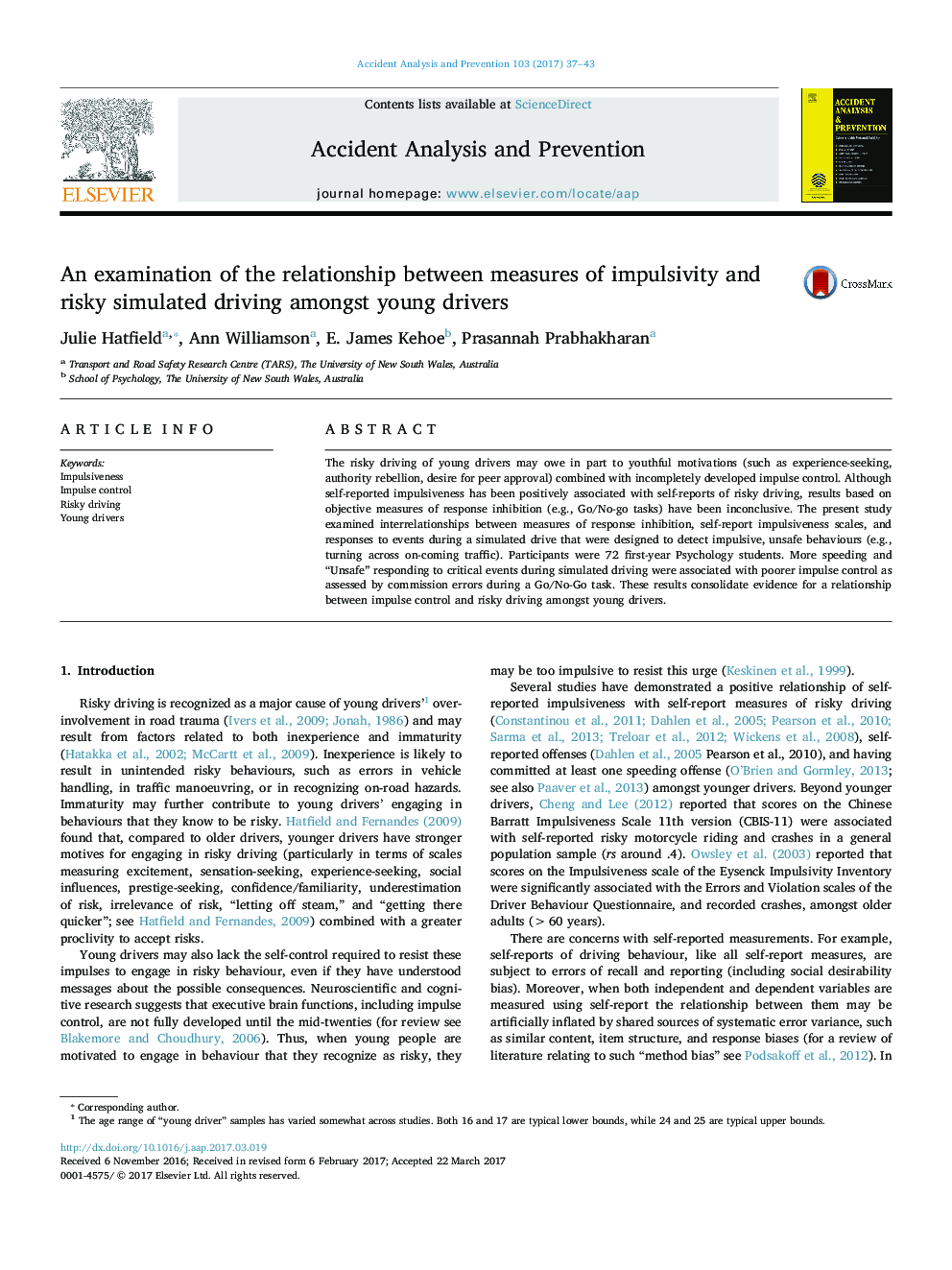| Article ID | Journal | Published Year | Pages | File Type |
|---|---|---|---|---|
| 4978743 | Accident Analysis & Prevention | 2017 | 7 Pages |
Abstract
The risky driving of young drivers may owe in part to youthful motivations (such as experience-seeking, authority rebellion, desire for peer approval) combined with incompletely developed impulse control. Although self-reported impulsiveness has been positively associated with self-reports of risky driving, results based on objective measures of response inhibition (e.g., Go/No-go tasks) have been inconclusive. The present study examined interrelationships between measures of response inhibition, self-report impulsiveness scales, and responses to events during a simulated drive that were designed to detect impulsive, unsafe behaviours (e.g., turning across on-coming traffic). Participants were 72 first-year Psychology students. More speeding and “Unsafe” responding to critical events during simulated driving were associated with poorer impulse control as assessed by commission errors during a Go/No-Go task. These results consolidate evidence for a relationship between impulse control and risky driving amongst young drivers.
Related Topics
Physical Sciences and Engineering
Chemical Engineering
Chemical Health and Safety
Authors
Julie Hatfield, Ann Williamson, E. James Kehoe, Prasannah Prabhakharan,
